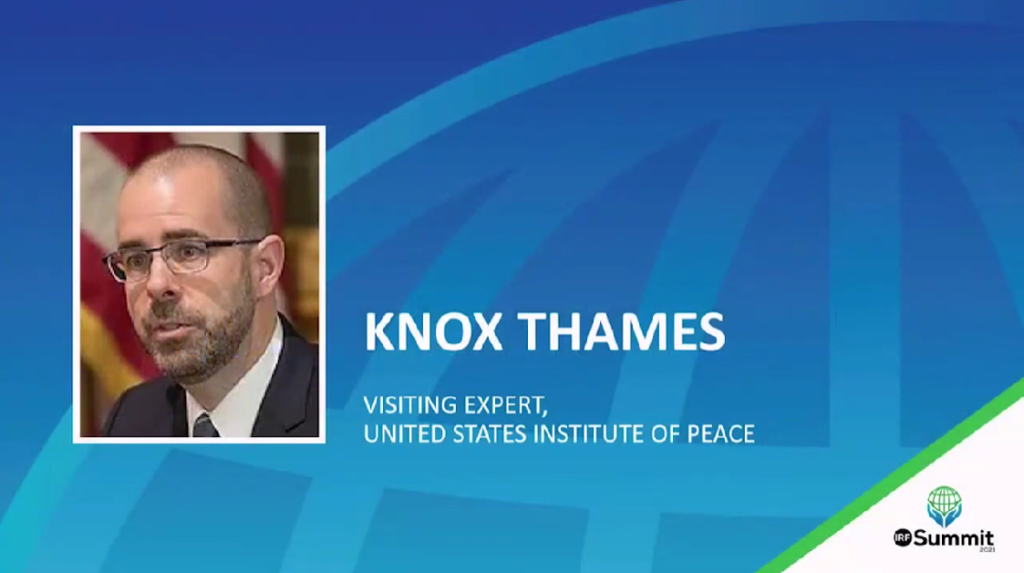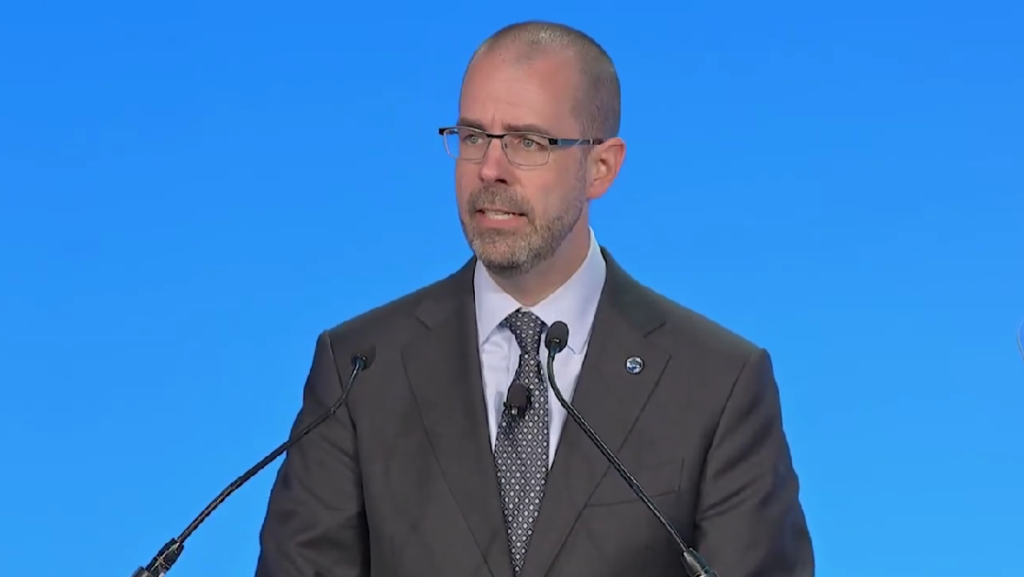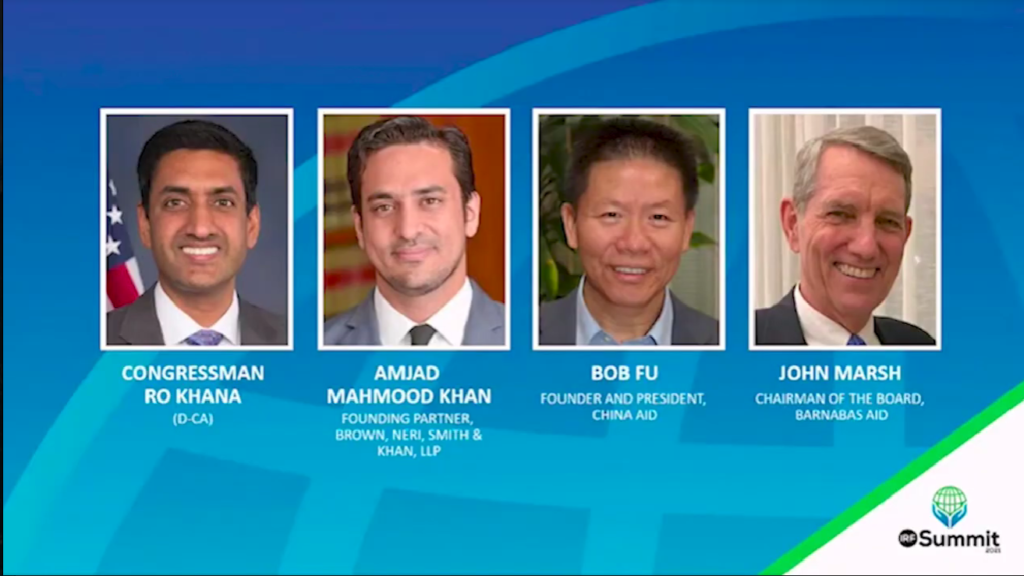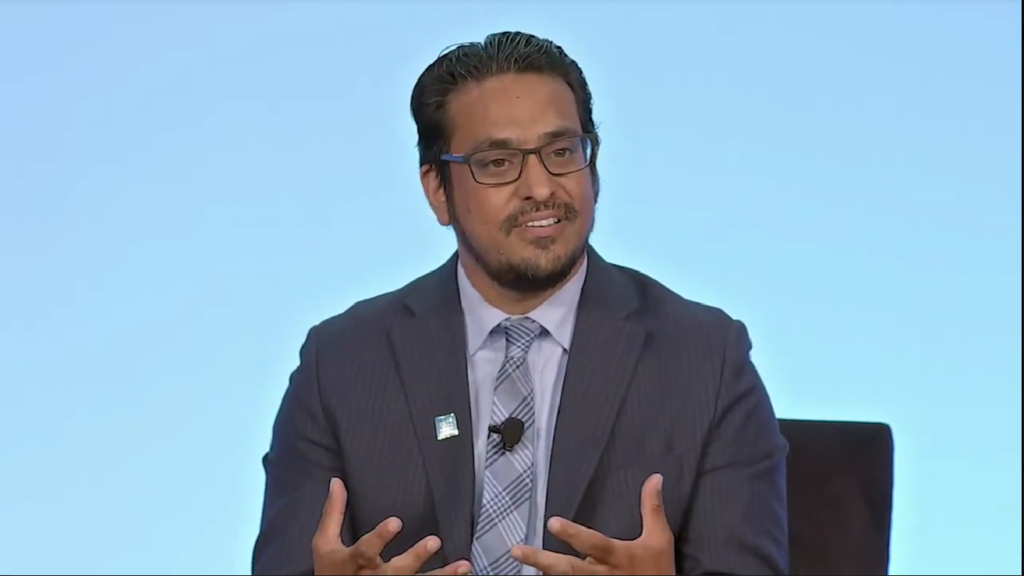Legal Structures of Discrimination in Pakistan (IRF Summit)
How the Pakistan government weaponizes law to discriminate against minorities
Amjad Mahmood Khan, Adjunct Professor of Law at University of California Los Angeles (UCLA) and the National Spokesperson for Ahmadiyya Muslim Community USA, was requested to participate in a panel at the plenary session of the IRF Summit–a gathering attended by more than 1,000 delegates–addressing ‘Legal Structures of Discrimination in Pakistan’ that has profound implications on the persecution and legal injustices perpetrated on the Ahmadi Muslims of Pakistan.
The panel was moderated by Knox Thames, visiting expert of the United States Institute of Peace, alongside U.S. Congressman Ro Khanna and other experts.

Mr. Thames began with the definition of Dr. Martin Luther King Jr. about the discriminatory distinctions in law. He emphasized that even legislation can be just or unjust. There is just law, which uplifts human dignity, and unjust law, on the other hand, which degrades human dignity.
Consequently, he emphasized that segregation statutes damage the self-esteem of those being discriminated against. Modern constitutions should be held responsible for propagating and protecting just laws.
Government Sanctioned Discrimination
Governments should defend religious minorities, not persecute them. They should facilitate religious practice and not restrict it. The constitution should always strive for equal citizenship, where it does not limit rights based on beliefs and religious practice. It should aim to end discrimination, not perpetuate it.
Amjad Mahmood Khan provided an overview of the persecution of Ahmadi Muslims in Pakistan and the rise of cyber laws that aim at prosecution of even those Ahmadi Muslims residing outside of Pakistan and who are citizens of other countries.
The panel then discussed legal structures of persecution and religious discrimination.


Under international law, the obligation of the government is to protect individual rights and the freedom of conscience. Examples of unconscionable violation of individual rights often come in the form of blasphemy or apostasy laws. Mr. Thames stated of unjust laws: “Such laws attacks specific communities, criminalizing the basic tenets of their faith such as Ahmadi Muslims in Pakistan”.
In Pakistan, Ahmadi Muslims are burdened with laws that criminalize their religious beliefs. As Mr. Khan stated, the law has been increasingly used and weaponized to repress communities, which he describes as legal structures of discrimination.


The first structure of discrimination is based on the constitutional definition of who is Muslim and who is not, which clearly is used for the purposes of promulgating unjust laws. Since 1974, the constitution of Pakistan has defined Ahmadis as “non-Muslims”.
Furthermore, the legal apparatus facilitated by the government defines the second structure of discrimination, in which five blasphemy laws were promoted that target Ahmadis and their acts of worship.
Persecution Of Ahmadi Muslims
Since 1984, Ahmadi Muslims are strictly forbidden to call their places of worship as ‘mosques’ or openly practice any traditions or tenets of Islam. Laws targeting Ahmadi Muslims are limiting the expression of religion, such as not allowing Arabic calligraphy in Ahmadi mosques. General humanitarian laws, like renewing the passport or the right to vote, are only allowed to Ahmadi Muslims with the requirement to declare the founder of the Ahmadiyya Muslim Community, Hadhrat Mirza Ghulam Ahmad, an imposter, and the self-disavowal as a Muslim.
Mr. Khan emphasized how strongly this strikes at the core of freedom of conscience: “Imagine if every Mormon or Catholic in America had to say they weren’t Christian in order to vote?”, asked Mr. Khan.
With a 99% literacy rate, Ahmadis in Pakistan are leading in the fields of Science, Mathematics, and Literature. Yet over the last couple of years, the persecution of Ahmadis has intensified.


The Pakistani Telecommunications Authority (PTA), which is equivalent to the Federal Communications Commission, has extended the criminal laws to foreign citizens. Two U.S. citizens were served a notice stating that the official Ahmadiyya website is posing to be Muslims, punishable with a 500 million Rupees fine and a three-year prison term, even though the website has neither content about the PTA, nor does it state anything regarding Pakistan.
A full side event was dedicated to this topic called “Digitizing Religious Repression on a Global Scale: How Pakistan is Exporting its Blasphemy Laws to the U.S. and Beyond”.
The event was attended by approximately a hundred people including fifty outside guests. Nadine Maenza, Chair of the U.S. Commission on International Religious Freedom, spoke at the event prior to an expert panel that included Knox Thames (U.S. Institute of Peace), Dr. Waris Husain (American Bar Association), Kian Vesteinsson (Freedom House) and Brett Williamson (O’Melveny & Myers).
In conclusion, Mr. Khan states that the extra territorial application of these laws is terribly dangerous and affects all communities. The only possible way to deal with bad laws is with good laws, and by transforming the legal structure. These structures bring difficult times to communities, and they can only be transformed if voices come together and overturn the unjust laws in countries like Pakistan.

